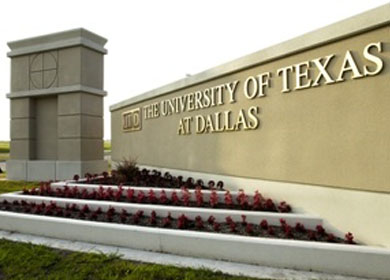
This weekend, two dozen UT Southwestern managers and physicians will become the inaugural graduates of a custom-made healthcare management master’s degree program.
The Healthcare Organization Leadership Program was designed and administered by the University of Texas at Dallas. The goal of the degree, called Master of Science in Management and Administrative Services, with a concentration in healthcare organization leadership, is to educate budding healthcare leaders on the fundamentals of finance and management.
The program has blossomed into a partnership between the academic medical center and Texas Health Resources (THR).
“We recognized that if we are going to deal with health reform, we have to have really well-informed leaders on faculty and staff,” said William Behrendt, UTSW vice president of human resources. “We needed to tailor (the program) to what is going on in healthcare.”
UTSW received 50 applications for the program when it began the current graduating class two years ago. Consisting of of 36 credit hours, the program includes a capstone project that is aimed directly at improving UTSW operations. Behrendt calls the projects “an important part of the program and part of the payback” for underwriting one-third of each student’s tuition, which exceeds $30,000. Projects to date have dealt with reducing infections, minimizing workers compensation injuries, improving research billing and compliance, and creating a faculty directory.
THR’s first full class began this fall.
Jim Dunn, THR’s chief learning officer, said the system’s involvement in the program arose out of a broader partnership between the two healthcare systems. He audited a few classes at UTSW and “saw the power and beauty” of the program because it went beyond academic credit. “The program gets into work processes and identifies people with high potential,” he said.
Dunn said the UTD program is often an add-on graduate degree for students, many of whom have advanced degrees either in business administration or in clinical areas.
Rob Hicks, UTD professor and architect of the degree program, said he had three goals: to ensure the content was current and relevant, that the faculty could deliver the content to seasoned professionals, and customizing classroom examples for the two organizations.
Hicks, who has worked with healthcare professionals for 30 years, said healthcare managers can be “woefully low on political intelligence. Most come from a technical background, and that’s their training. Navigating political waters does not come intuitively to them. Doctors are a supreme example of that.”
Stan Taylor, MD, said the program helped him transition from exclusively working in patient care to becoming associate vice president and chief medical officer of the ambulatory practice at UTSW. Taylor said he appreciated the program’s convenience of blending online learning with the occasional three-day weekend of classes.
“The training has made me a more capable leader for change and has given me a heightened level of confidence,” he said. “The goal of this program is to teach physicians and other health care workers how to deal with changes in the industry related to health care reform. DFW needs physicians with this type of education if we hope to maintain and improve the quality of care provided in our community.”
Joe Borrelli, MD, an orthopedic surgeon at THR’s Arlington Memorial Hospital, said that while serving in a number of physician leadership position,s he found himself “trying to communicate with administrators, who seemed to be speaking a different language. (The program) has also helped me improve my organizational skills and has allowed me to provide better mentorship, deal with disruptive behaviors, and better understand the pressure hospital administrators are under as they try and manage decreasing resources and increasing patient demand.”
Gloria Espinosa, director of minor student affairs at the medical school, credited the program for her promotion in June. “I have greater clarity about my career goals, and I’ve become a more efficient change agent,” she said. “My perspective has certainly broadened.”
Another student, Lori Cerami, practice administrator at Foot and Ankle Associates of North Texas in Grapevine, praised the interaction. “It’s not a typical college class,” she said. “I’m always on the edge of my seat because I’m engaged and excited. It’s like attending a conference every month.”
Behrendt at UTSW said the value of the program is readily apparent. “We now have two or three dozen people doing things differently. It helps us move into the future. It has done great job of breaking down the silos, especially in a complex organization like (an academic medical center): teaching, research and clinical. All these people who go through this program become colleagues, best friends and teammates. That was one of our goals, too.”
Hicks said he takes a great deal of pride in the program. “You’re not going to get this anywhere else,” he said.
Steve Jacob is editor of D Healthcare Daily and author of Health Care in 2020: Where Uncertain Reform, Bad Habits, Too Few Doctors and Skyrocketing Costs Are Taking Us. He can be reached at [email protected].





